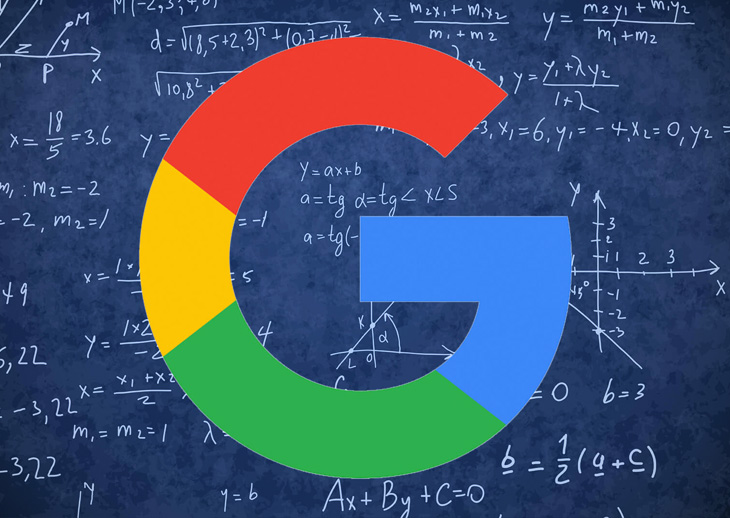On-Page SEO Essentials: Why It’s Important and How to Perfect It?
At a glance:
- Understand the importance of clear communication with search engines to drive organic traffic.
- Learn the distinct roles of content optimisation and external reputation-building.
- Dive into essential on-page factors like title tags, meta descriptions, headers, and mobile-friendliness.
In the ever-evolving world of digital marketing, On-Page SEO stands as a cornerstone of website optimisation. It’s a multifaceted approach that encompasses everything from the content you write to the underlying technical details that users may never see but search engines must understand.
Why On-Page SEO Matters?
At its core, On-Page SEO is crucial because it’s how you communicate with search engines. It’s about ensuring that your website and its content are structured and presented in a way that search engines can easily interpret. This clarity helps search engines match your pages with relevant queries, which is essential for driving organic traffic and improving your site’s visibility.
On-Page SEO vs. Off-Page SEO
In Search Engine Optimisation (SEO), two fundamental strategies can significantly influence your website’s visibility and ranking: On-Page SEO and Off-Page SEO. Both are crucial in crafting a comprehensive SEO approach, yet they serve different purposes and require distinct tactics.
On-Page SEO: The Foundation of Your Website’s Content and Structure
On-page SEO refers to the optimisation strategies applied directly within your website, encompassing content, HTML source code, and overall webpage structure. It’s the aspect of SEO that you have complete control over. This includes ensuring high-quality, relevant content, optimising your headlines and HTML tags (like title, meta, and header), and utilising images and keywords effectively.
The direct impact of On-Page SEO on your website is profound:
– Search engines use it to understand the content and structure of your website.
– It indicates the relevancy of your content to search queries.
– It enhances the user experience, keeping visitors engaged and reducing bounce rates.
While we won’t delve into specific on-page actions, it’s important to note that high-level suggestions such as focusing on content quality, keyword relevance, and site usability can lead to significant improvements in your website’s search engine rankings.
Off-Page SEO: Building Your Website’s Reputation and Relationships
Alternatively, off-page SEO involves external factors and strategies that aim to improve your website’s reputation and authority. This is achieved through methods like link building, social media marketing, influencer outreach, and more. Off-page SEO is about how the world perceives your website.
The importance of Off-Page SEO lies in its ability to:
– Increase your site’s authority, which can positively affect your site’s ranking in search results.
– Generate traffic from other sources, diversifying your audience.
– Build relationships with peers in your industry, opening doors for collaboration and cross-promotion.
Importance of On-Page SEO
Impact on Search Engine Rankings
On-page SEO is instrumental in communicating a website’s content relevance and quality to search engines. By optimising elements such as meta tags, headers, and keywords, a website can effectively signal its value to search engine algorithms, which is crucial for improving rankings.
Enhancing User Experience
A well-optimised page goes beyond search engines—it’s about delivering a seamless and intuitive user experience. On-page SEO involves structuring content and design in a way that users find engaging and easy to navigate, which can lead to increased dwell time and lower bounce rates.
Increasing Organic Traffic
The ultimate goal of on-page SEO is to attract more organic traffic—visitors who land on your site through non-paid search results. By aligning content with user intent and making it easily discoverable, on-page SEO helps draw in a targeted audience looking for the solutions or information that your website offers.
Building Credibility and Trust with Search Engines
Over time, consistent on-page optimisation will increase a website’s credibility and trustworthiness. A good user experience and valuable content can lead to higher rankings and visibility.
On-page SEO goes beyond pleasing algorithms. It’s a strategic endeavour that requires ongoing attention and refinement but can yield substantial rewards in terms of online presence and user engagement. Remember, on-page SEO is a marathon, not a sprint, and its importance in a comprehensive digital marketing strategy must be balanced.
Key On-Page Optimisation Elements: A Comprehensive Overview
On-page optimisation is the process of improving the website’s ranking on search engines directly within the website itself. It’s a multifaceted concept that involves various elements, each playing a crucial role in the site’s overall SEO performance. Here’s a high-level overview of these elements and their significance.
Title Tags
These are the clickable headlines that appear in search results and are extremely important for usability, SEO, and social sharing. A webpage’s title tag should accurately describe the page’s content and include a targeted keyword.
Meta Descriptions
Meta descriptions are HTML attributes that provide a concise explanation of a web page’s contents, although they do not play a direct role in ranking. A preview snippet is typically displayed on search engine results pages (SERPs) to influence click-through rates.
Header Tags
Header tags are HTML elements (H1, H2, H3, etc.) used to identify headings and subheadings within your content from other types of text (e.g., paragraph text). They help organise content for readers and contribute to SEO by highlighting key topics and keywords.
URL Structure
A URL should be easy to read and remember for both users and search engines. URLs that are short, descriptive, and include keywords can perform better in search engine results.
Keyword Optimisation
Researching, analysing, and selecting the best keywords to target will help you drive qualified traffic to your website from search engines. Having the right keywords and placing them in the right areas is essential.
Content Quality
A successful website must have high-quality, relevant content. Provide your audience with unique information while also answering their questions and engaging them.
Internal Linking
The term “internal link” refers to links that lead from one page of a website to another within the same website. Three reasons make them valuable in main navigation:
- Website navigation is made possible by them,
- They assist in establishing an information hierarchy for a given website,
- They help spread link equity (ranking power) throughout the web.
Image Optimisation
This includes practices like using high-quality images, appropriate file formats, and alt text to improve user engagement and accessibility and optimise search engines.
Mobile-Friendliness
The increasing prevalence of mobile devices necessitates optimising websites for mobile devices. In addition to improving the user experience, a mobile-friendly website is more likely to be indexed by search engines.
Page Load Speed
Page load time is a critical factor for user experience and SEO. Faster pages are more efficient and provide a better on-page user experience.
Each of these elements is a piece of the larger puzzle that makes up on-page SEO. While it’s important to understand each’s role, it’s equally crucial to see them as interconnected components of a single, holistic strategy.
How Can We Help?
Our approach to on-page SEO is both strategic and data-driven. We ensure that every aspect of your website, from content to HTML source code, is fine-tuned for maximum visibility and engagement.
Our case studies highlight our past successes across various industries. For instance, we helped a leading health niche website achieve over a million monthly search visits and recover significantly from a core update through our tailored SEO strategies. Another success story involves a prominent e-commerce platform that tripled its organic search traffic, demonstrating our adaptability and effectiveness in diverse market conditions.
Expertise is the cornerstone of our services. Our team comprises seasoned SEO specialists who bring a wealth of knowledge and experience. We understand that each business is unique, which is why we emphasise tailored solutions. Whether it’s a comprehensive SEO audit, strategic keyword research, or crafting engaging content, we customise our services to align with your specific business objectives and market niche.
Our focus is unwavering: to provide you with an SEO strategy that enhances your search rankings and adds real value to your business. We strive to create a seamless user experience, improve your website’s authority, and ultimately drive conversions. By partnering with us, you’re choosing a path to digital excellence, where every click leads to a potential customer, and every page view is an opportunity for growth.
On-page SEO is an ongoing effort that demands continuous attention and adaptation to best practices and search engine updates. By optimising your web pages and focusing on user experience, you can achieve high search rankings, increased traffic, and more conversions.
Our strategic, data-driven approach ensures every aspect of your website is optimised for maximum visibility and engagement. Our case studies demonstrate our success across various industries, highlighting our ability to deliver tailored solutions that drive significant organic search growth.
With a team of experienced SEO specialists, we customise our services to align with your unique business objectives and market niche.
Enquire Today
Melbourne Head Office
Suite 38 Level 7/570 St Kilda Rd, Melbourne VIC 3004, Australia
Phone: 1300 780 471
Email: [email protected]








